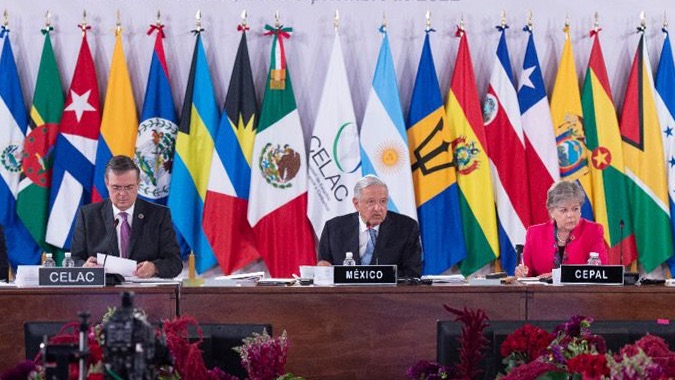Informal Settlement Upgrading: Improving Living Conditions in South American Cities
Introduction
In today's rapidly urbanizing world, the issue of informal settlements has become a pressing concern. South American cities, in particular, are grappling with the challenges posed by these settlements, which are characterized by inadequate housing, limited access to basic services, and a lack of legal recognition. However, there is hope. Through the process of informal settlement upgrading, we can work towards improving the living conditions in these areas. This article aims to shed light on contemporary issues in community and social development in North and South America and inspire readers to promote unity while equipping themselves with the skills to make a positive impact.
- Understanding informal settlements
Informal settlements, commonly known as slums or shantytowns, are areas where housing, infrastructure, and services are built and operated outside the formal system. These settlements often lack basic amenities such as clean water, sanitation facilities, and electricity, resulting in poor living conditions for their inhabitants.
- The magnitude of the problem
In South America, informal settlements are prevalent in many cities, with millions of people living in substandard conditions. This poses significant challenges for urban planners and policymakers who strive to ensure sustainable and inclusive development.
- The importance of upgrading
Informal settlement upgrading is a holistic approach that aims to improve living conditions in these settlements while providing legal recognition to the residents. It involves improving infrastructure, providing access to basic services, and enhancing the social and economic well-being of the community.
- Success stories
Several South American countries have successfully implemented informal settlement upgrading projects, showcasing the positive impact it can have on communities. For example, Medellín in Colombia transformed the once-infamous Comuna 13 into a vibrant neighborhood through targeted investments in transportation, education, and public spaces.
- Participation and empowerment
A key aspect of successful informal settlement upgrading is community participation and empowerment. By involving residents in the decision-making process and providing them with the necessary tools and skills, we can ensure that the solutions implemented are tailored to their specific needs and aspirations.
- Sustainable and inclusive development
Informal settlement upgrading is not just about providing better housing and infrastructure; it is also about fostering sustainable and inclusive development. By integrating these settlements into the formal urban fabric, we can create opportunities for education, employment, and social integration.
- The role of technology
In today's digital age, technology can play a crucial role in informal settlement upgrading. Solutions such as mobile applications for service provision, digital mapping, and data analysis can help identify gaps and monitor progress, ensuring efficient and transparent implementation.
- Financing and partnerships
Addressing the challenges posed by informal settlements requires a multi-dimensional approach that involves partnerships between governments, non-governmental organizations, and the private sector. Innovative financing mechanisms, such as public-private partnerships and microfinance, can help mobilize the necessary resources.
- Policy and legal frameworks
To effectively address the issue of informal settlements, governments must develop comprehensive policy and legal frameworks. These frameworks should prioritize the rights of informal settlers, provide incentives for upgrading, and establish clear guidelines for urban development.
- Learning from other regions
While South America faces unique challenges, there is much to learn from successful informal settlement upgrading initiatives in other regions. By studying best practices from around the world, we can adapt and implement strategies that are tailored to the specific context of South American cities.
- Capacity building and education
To drive sustainable change, it is crucial to invest in capacity building and education. By equipping individuals with skills in urban planning, community development, and social entrepreneurship, we can empower them to become agents of change in their own communities.
- Advocacy and awareness
Creating awareness about the challenges faced by informal settlers is essential for mobilizing support and resources. By advocating for policy changes, raising public awareness, and engaging in dialogue, we can foster a sense of collective responsibility towards addressing this issue.
- Measuring impact
To ensure the effectiveness of informal settlement upgrading projects, it is important to establish robust monitoring and evaluation mechanisms. By measuring the impact of interventions, we can identify areas of improvement and make evidence-based decisions for future initiatives.
- Continual improvement
Informal settlement upgrading is an ongoing process that requires continual improvement and adaptation. By embracing innovation, learning from successes and failures, and continuously evaluating our efforts, we can ensure that we are making a lasting positive impact on communities.
- Conclusion: Join the movement
In conclusion, informal settlement upgrading presents a viable solution to improve living conditions in South American cities. By fostering unity, developing the necessary skills, and advocating for change, we can contribute to the transformation of informal settlements into thriving, inclusive communities. Join the movement for informal settlement upgrading and become a catalyst for positive change in North and South America.
What are your thoughts on informal settlement upgrading? How do you think we can promote unity and social development in North and South America? Share this article with others and let's inspire change together! #InformalSettlementUpgrading #CommunityDevelopment #SocialChange #NorthSouthUnity




